If you sell a product or service, you should be doing speaking gigs at conferences and local events. It's easily one of the best ways to land new clients and expand the overall reach of your brand.
This article is about how to find speaking gigs, and then how to gain a pile of totally white-hat backlinks every time you land one.
If you sell a product or service, you should be doing speaking gigs at conferences and local events. It's easily one of the best ways to land new clients and expand the overall reach of your brand.
This article, however, is not about why you should go after speaking gigs.
I’m just going to assume you agree with me on that.
This article is about how to find speaking gigs, and then how to gain a pile of totally white-hat backlinks every time you land one.
The Obvious Links You’ll Get From Speaking Gigs
The obvious links are the ones you get from conference or event websites. For example, most conferences will have an "about the speakers" section and will often link to your website or your social media profiles.
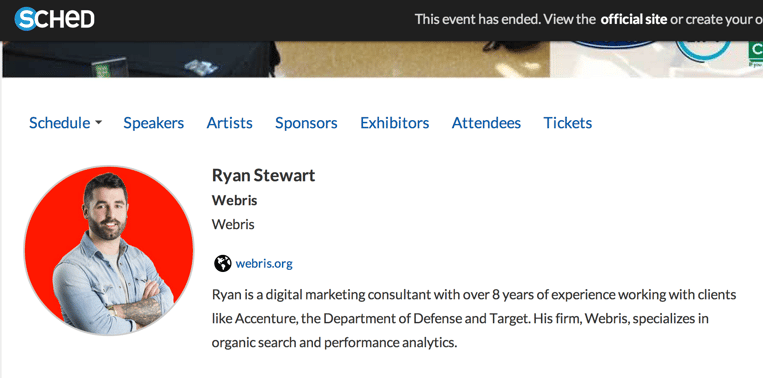
Same for local groups who meet regularly. They’ll often have a profile of their next speaker, along with links to learn more about the person and their business.
Creative Ways to Gain More Backlinks from Speaking
The event website is not the only way this strategy helps you build links, however.
If you plan it right, you can also earn a bunch of links from attendees after the event.
Here’s the full process I use, starting with where to find speaking opportunities in the first place:
1. Find Conferences, Meetups, and Local Events
The first step is to find events that might want you as a speaker.
To find those, I start in Google and use search operators like these:
- site:meetup.com
- intitle:conference
- intitle:seminar
- intitle:expo
- intitle:trade show
- intitle:exhibition
Then I just add the city name from anywhere you'd be willing to travel. It usually only takes a few searches to find a lengthy list of opportunities.
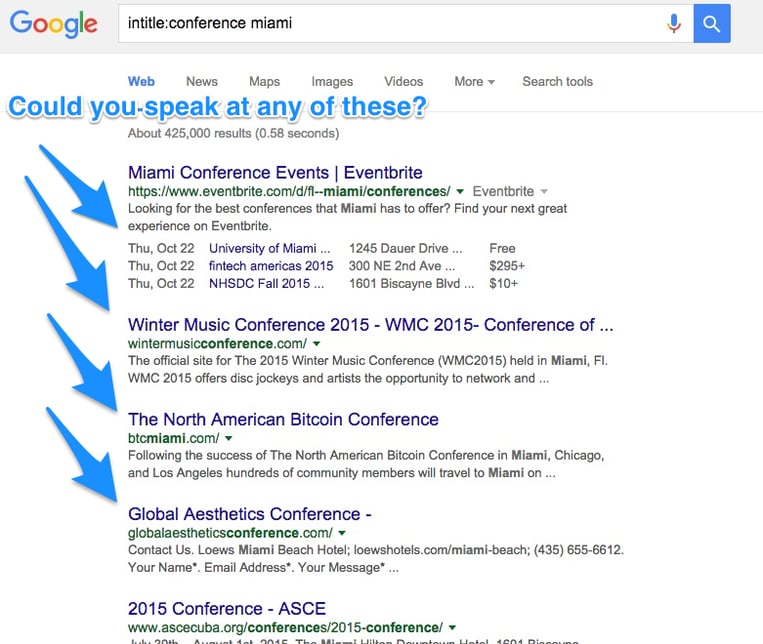
Don't forget to search for meetups as well as conferences. Meetups may be smaller, but as a link-building strategy, they can be just as effective as a larger event.
If you're not sure how to find a meetup, just go to the site and try a few searches.
To give you just one example, think about the platforms people use to run their businesses. If you work with developers, look for a WordPress meetup. If you have clients in eCommerce, Shopify even has a specific subdomain devoted just to meetups:
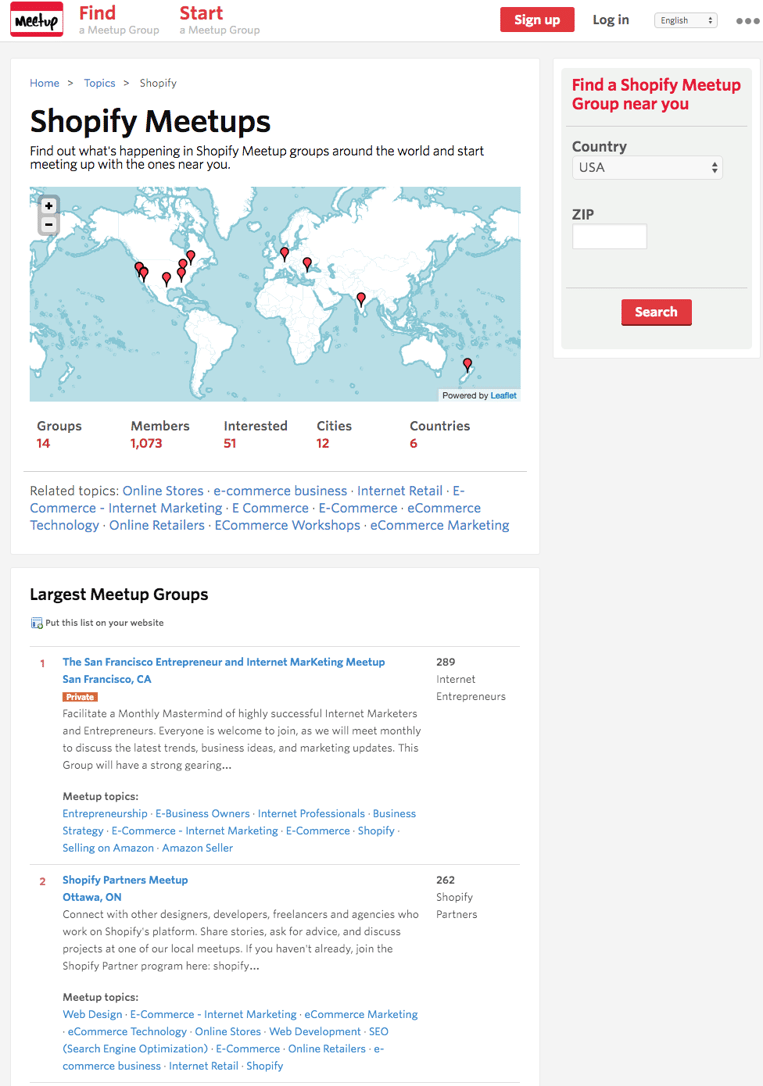
I promise if you just experiment a little, you’ll find plenty of opportunities.
2. Build and Publish Content Before the Talk
As you'll see in a moment, putting a few things in place before the event can dramatically improve your results.
A. Upload Your Slides to SlideShare
Start by taking the slides from your talk and upload them to SlideShare. This is the easiest way to turn your talk into a permanent content asset for you.
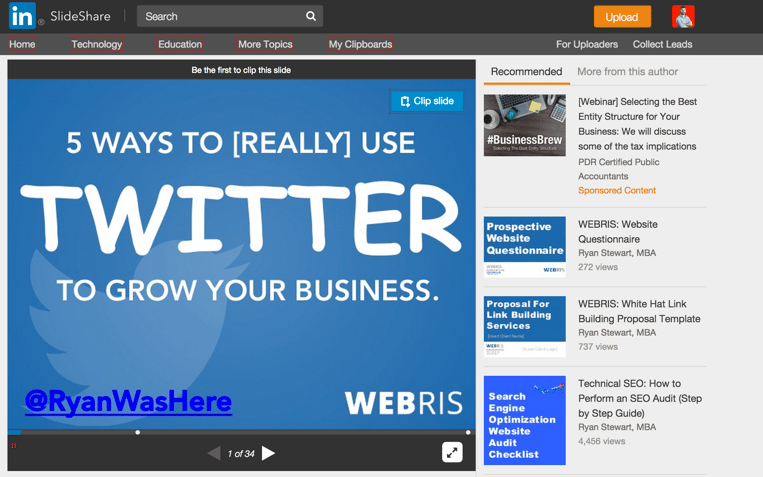
B. Make a Video of Your Talk and Publish It on YouTube
You're going to practice your talk anyway, why not just record yourself doing it and upload it to YouTube?

This can be either a "talk-into-the-camera" video, or you can just record your screen as you talk over your slides.
C. Publish a Blog Post with the Content You’ll Be Covering in Your Talk
This is the most important one. Having a dedicated blog post ready to go is the primary tool you’ll use to get more backlinks after the talk.
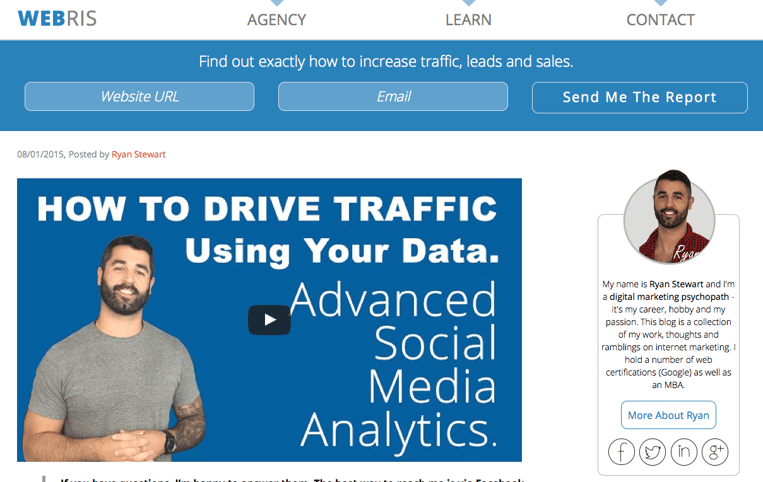
If you published a SlideShare deck or a YouTube video, this is a great place to embed them.
3. Promote Your Work After the Talk
You did the work to create the content. You published a blog post, a YouTube video, and a SlideShare. You gave a fantastic talk.
Now let’s to bring it all together.
After you give your talk, everyone will be asking for your information. When that happens, if you’ve published a blog post ahead of time, you’ll have a great place to direct these people.
A lot of the people love to write roundup posts when they attend conferences and events. If you’ve given them a link to your material, there’s a good chance some of them will include it in their post.
If you get an attendee list, send those people a note thanking them for attending, along with a link to your blog article.
If you didn’t get a contact list, ask the event organizer to send a note on your behalf.
The result? Links on links on links.
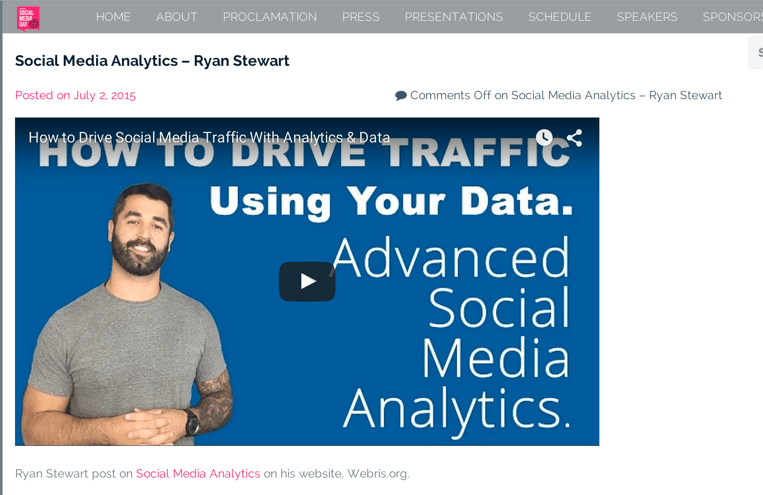
Pro tip:
Promote your post-talk blog post on social media using the hashtags from the event and tagging the organizer’s account (I’ve been experimenting with Instagram Ads lately with tremendous success). Try and do this the day after the event when it’s still fresh on everyone’s mind.
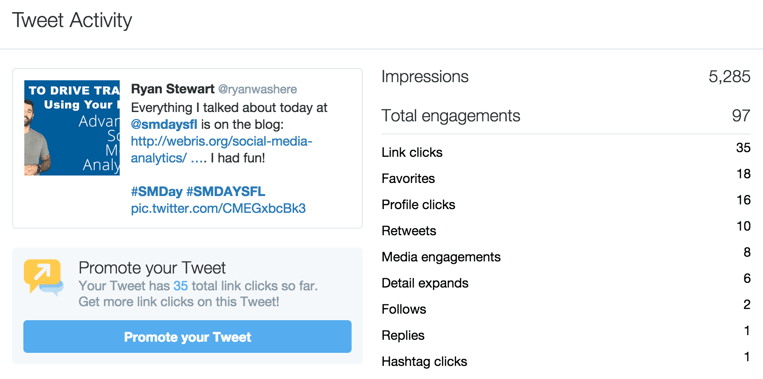
Conclusion
Speaking at conferences and events is already a solid marketing strategy. It's a great way to build your brand and land some new clients.
Since that's true, why not do a little extra work to build some backlinks along the way?
With a little planning ahead of time and a little outreach after the fact, you can often earn dozens of quality links from speaking at a conference.
So polish up your PowerPoint deck and put yourself out there. It'll be good for you, good for your business, and good for your search rankings as well.

